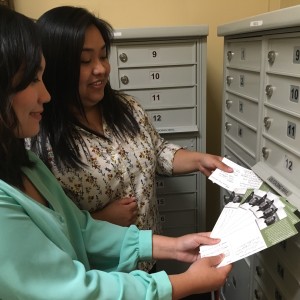Last week, the National Asian Pacific Center on Aging (NAPCA) delivered over 870 comments to the Administration for Community Living (ACL), asking ACL to require each State Plan on Aging to (1) increase language access and disaggregated collection of data, and to (2) strengthen service delivery to the Asian American and Pacific Islander (AAPI) community by supporting community/ethnic-led organizations which currently do not receive support through the ACL for their important work.
What motivated us to make these requests?
 AAPI older adults are the most diverse of the minority groups, and are a rapidly increasing population. According to 2010 US Census projections, between 2010 and 2030, the AAPI older adult population is expected to increase by 145%.
AAPI older adults are the most diverse of the minority groups, and are a rapidly increasing population. According to 2010 US Census projections, between 2010 and 2030, the AAPI older adult population is expected to increase by 145%.
The Older Americans Act (OAA) of 1965, as amended, provides funding across the nation to support older adults’ long-term service and support needs as they age. More than 2.7 million older adults receive Title III services through the OAA, but only 3.2% of these older adults are AAPI.
Through listening sessions across the nation, overwhelmingly, AAPI older adults are sharing that poor access to services is one of the most significant challenges faced as they age. To make sure that older adults with the greatest need receive these services, the OAA requires states to give preference to older adults with the greatest economic and social need. Targeting requires states to prioritize older adults who are minorities, low-income, and also those with limited English proficiency (LEP). Although these provisions exist, AAPI older adults do not have equitable access to the services and supports they need.
AAPI older adults face the highest rates of LEP. All Bhutanese older adults are LEP, and more than two out of every three Chinese, Korean, Vietnamese, Laotian, Hmong, Fijian, Marshallese, Nepalese, Taiwanese, Bangladeshi, and Burmese older adults are LEP.
32% of all older adults served by the OAA are at or below poverty; of those, 52% are White Americans, and only 4.4% are AAPI. Yet, 28% of AAPI older adults across the nation live in poverty as compared to White Americans at 7.3%. More than one in five Korean, Bangladeshi, Burmese, Cambodian, Micronesian, and Nepalese older adults are impoverished.
The OAA must recognize that other factors, such as immigration, significantly contribute to the social and economic need of older adults throughout America. More than two out of every three Chinese, Filipino, Korean, Vietnamese, Asian Indian, Bangladeshi, Burmese, Indonesian, Nepalese, Pakistani, Taiwanese, and Thai older adults are immigrants.
Appropriate targeting of services, however, relies on the Aging Network’s understanding of diverse populations within their services areas. In a recent survey of Aging Network professionals, a surprising 62% did not know which AAPI language was the most prevalent within their service area, and 61% did not feel competent in their ability to provide culturally competent and linguistically appropriate services to AAPI older adults needing services.
It is imperative for policies, such as the OAA, to prioritize the unique challenges of AAPI older adults and other diverse populations to resolve these disparities and enable equitable access to long-term services and supports into the future.
The opinions expressed in this article are those of the author and do not necessarily reflect those of the Diverse Elders Coalition.

